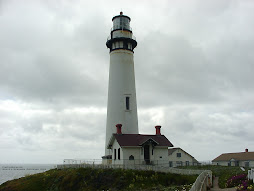Boats float by displacing a given amount of water. Hydraulic pressure is constantly attempting to push that water back in the space occupied by the boat, and when it does, the vessel usually sinks. So, in practice as well as theory, the only thing that actually sinks a boat is water.
There are three primary causes for boats sinking at the dock; sea water, rain water and potable water. Contributing factors include poor hull and equipment maintenance, inadequate or inoperative bilge pumps, and electrical sources, such as batteries, that simply give out.
Sea water will enter your hull through any possible route. Thru-hulls should be inspected regularly, and tested at each haul out. Look for seepage around fittings, deterioration and corrosion. Open and close seacocks regularly to assure free operation. Be sure all below waterline fittings are double clamped with genuine stainless steel clamps. (Some clamps are not all stainless; check all parts of the clamp with a magnet.) Check the clamps regularly, and replace any that are rusted. Good idea to check your exhaust hoses and outlets too. A loose connection can allow a lot of water in the bilge, not to mention the carbon monoxide danger when your engine is running. Shaft and rudder packing glands or stuffing boxes should receive regular attention. Unless you have dripless seals installed, shaft seals should drip some when underway, but not excessively. Adjust to vessel manufacturers specifications.
Rain water will collect in your boat unless it has a free path overboard. Keep deck drains and scuppers free of debris. Leaves, rags left on deck, fishing debris and other materials can clog drains. Check the drain hoses and tighten clamps as needed. Rain water that would normally drain off can enter the bilge, and cause the vessel to sink. This usually happens after repeated rains, even in places where you have relatively moderate to dry climates, and then a rash of storms, as we have seen during recent years. If you have a cover on a small boat or dinghy, be sure it has a bow or other raised portion to deflect water off, or the cover will "belly" and collect until it fills and possibly sink the vessel.
Above the waterline overboard discharge fittings, including those for bilge pumps and shower drains, can also cause sinking. This occurs when a vessel takes on sufficient water, or otherwise is burdened, to allow these fittings to settle below the waterline, and sea water enters the lines. Since these lines do not have check valves, water pours in through the bilge pump, or shower drain, and the vessel sinks. Many boat owners install inverted "U" loops in the lines leading to these fittings to reduce the potential for this type loss. Be sure these fittings are securely clamped too; sinkings have occurred due to hoses pulling off fittings at, or just above, the waterline.
Potable water, straight from the tap, is another cause of vessel sinkings. The owner leaves the city water connected to the vessel and pressurized while away. If a hose breaks or a fitting fails, the vessel is then allowed to fill up from an almost unlimited water supply. This is particularly a problem for people who use their boats infrequently. There are two simple solutions; the first, and the best, is to shut off the water supply whenever you will not be on board. Second is to purchase a small metering device that connects to your water supply hose, (about $10.00) and set the gallonage to your expected consumption for the day, weekend or whatever time you expect to be on board. The meter will shut off when you've used that much, and hopefully, before your boat can sustain much damage if a leak occurs and you're not there.
Most sinkings are preventable. Seeing your prized boat at the bottom, with only the mast or antenna to mark its position, is only the beginning. Raising, salvage, and pollution abatement costs can be many times the value of the vessel. Renovation and refurbishing is often out of the reach of the owner. Don't rely solely on bilge pumps; they are subject to failure, as is the electrical current from your batteries. Take some precautions now to protect your investment, and your enjoyment.
Safe Boating.
Top 60 Boating Tips by Boating Magazine
Wednesday, August 20, 2008
Subscribe to:
Post Comments (Atom)













No comments:
Post a Comment